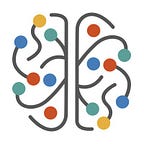You’ve Got to Fight for Your Right to Data Rights
We’ve heard time and again that ‘data is the new oil’.
Like with any commodity, people are fighting to keep their data theirs, not wanting it to go into the wrong hands (how to define ‘wrong’ being subject to the person in question). People want complete control over their data and governments, as well as large corporates, are hearing the clarion call clearly.
On the corporate front, this week we saw the good, the bad, and the ugly of data rights:
- 👍Helm is a personal, private email server that won’t share your data | Apple now lets US customers download their own data | Sidewalk Toronto wants independent trust to control data collected in Quayside
- 👎It turns out that Facebook could in fact use data collected from its Portal in-home video device to target you with ads
- 👹US credit card giants flout India’s new law on personal data
We’re also interested to see what will become of a new joint initiative between the US, Japan, and the EU, who will work together to craft rules on cross-border data transfers, aiming to safely share more information and so become more competitive in developing AI as China vacuums up more and more personal data on its own.
Read on to learn about facial recognition tech, the impact of AI on religion, our obsession with complexity, and more.
Bias
Shanghai airport first to launch automated clearance system using facial recognition technology
Shanghai Hongqiao International Airport, one of the city’s two major airports, introduced on Monday China’s first automated clearance system for airline passengers using facial recognition technology. TSA has also laid out plans to use facial recognition for domestic flights.
Human Purpose
Disruptive technology and organised religion
More or less since Nietzsche declared God “dead” nearly 140 years ago, popular wisdom has held that science and religion are irreparably misaligned. However, at a recent conference hosted by the Vatican, Avi Reichental (TechCrunch) learned that even in the era of AI and gene splicing, religious institutions and leaders still have much to contribute to society as both moral compass and source of meaning.
Designing for AI
Eberhard Wolff writes about software development in general, but there is certainly crossover to developing AI:
Software development is all about handling complexity. It would be best to avoid complexity right away. But unfortunately, there are times when complexity is worshipped — consciously or unconsciously — leading to unnecessarily complex systems.
Roboethics
Social robots will become family members in the homes of the future
Cynthia Breazeal (Director of the Personal Robots Group at MIT) discusses how as with any intelligent technology that can learn and personalise its offerings to provide improved service, upholding and protecting the privacy of people and the security of their data are critical issues to address in an ethical and responsible way. The onus will fall on the companies who create social robots to ensure that these aspects remain paramount and are considered at each and every stage of development. This way, users can feel secure in their decisions to incorporate these robots into their homes and lives.
Public Engagement
Chinese search firm Baidu joins Partnership on AI, global AI ethics body
The president of Baidu, Ya-Qin Zhang, said in a statement: “As AI technology keeps advancing and the application of AI expands, we recognise the importance of joining the global discussion around the future of AI. Ensuring AI’s safety, fairness and transparency should not be an afterthought but rather highly considered at the onset of every project or system we build.”
Algorithmic Explainability
Explainable AI: What happens inside the Black Box
Carnegie Mellon University Professor Leman Akogluspecialises in anomaly detection models. The Heinz College of Information Systems and Public Policy faculty member is an expert on machine learning and data mining and uses that knowledge to explain how algorithms make decisions. Akoglu’s work in this area spans many topics, from identifying emerging news that could constitute risk for corporate partners, to identifying fraudulent users and fabricated reviews on sites like Yelp and TripAdvisor.
Fairness
Applied gets $2M to make hiring fairer — using algorithms
London-based startup Applied has bagged £1.5M (~$2M) in seed funding for a fresh, diversity-sensitive approach to recruitment that deconstructs and reworks the traditional CV-bound process, drawing on behavioural science to level the playing field and help employers fill vacancies with skilled candidates they might otherwise have overlooked.
Governance and Accountability
Amazon employee on selling facial recognition tech to police
A couple weeks ago, an anonymous Amazon employee, along with co-workers delivered a letter to this effect, signed by over 450 employees, to Jeff Bezos and other executives. The letter also contained demands to kick Palantir, the software firm that powers much of ICE’s deportation and tracking program, off Amazon Web Services and to institute employee oversight for ethical decisions. Check out the op-ed here.
